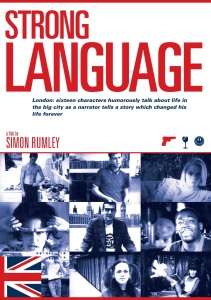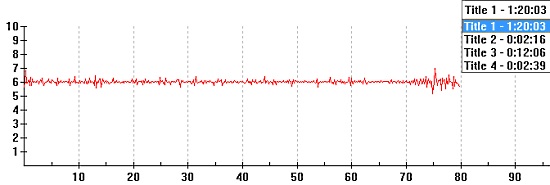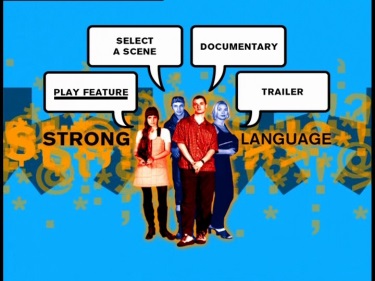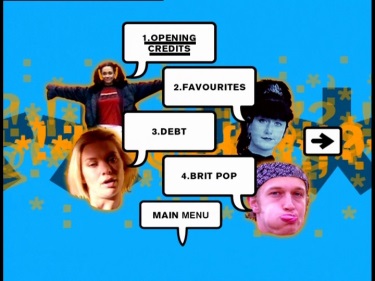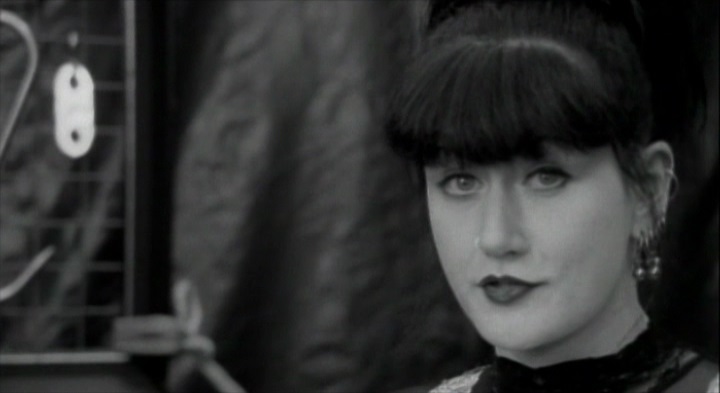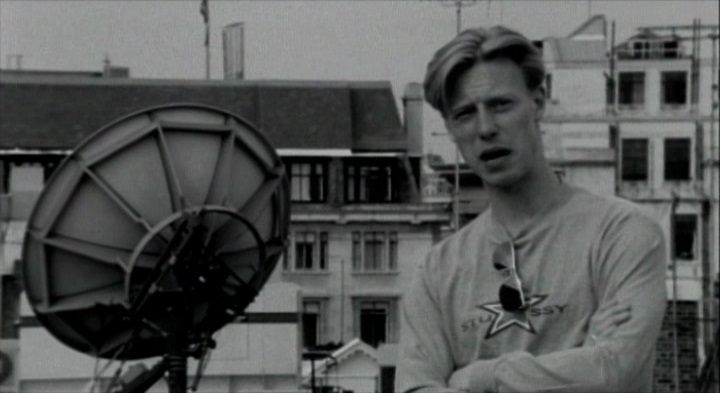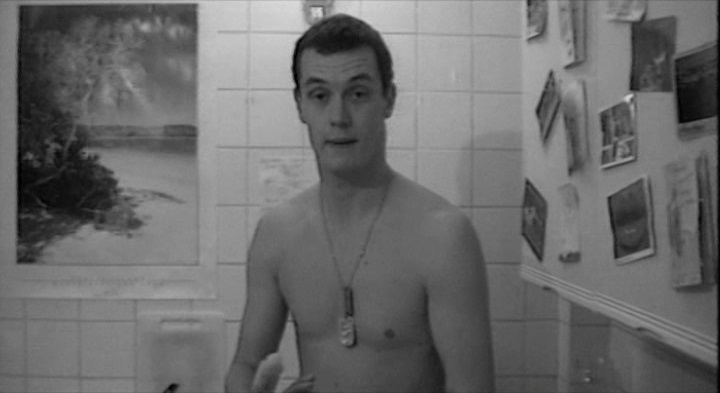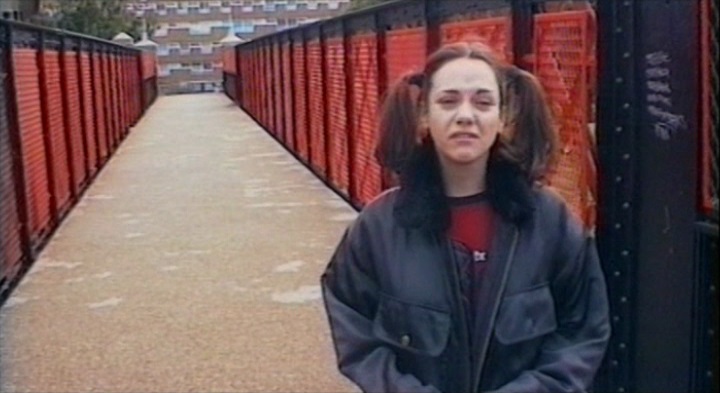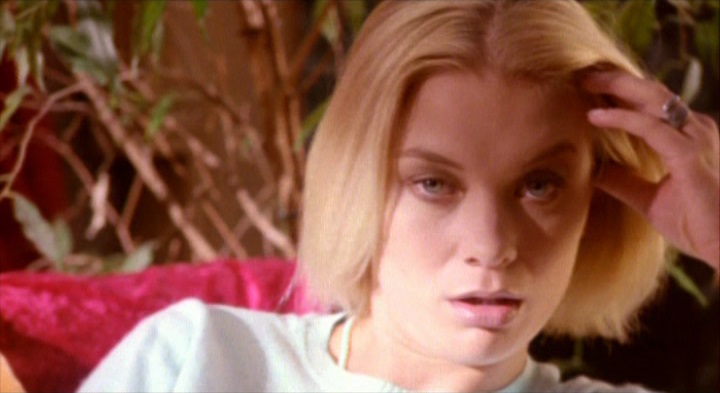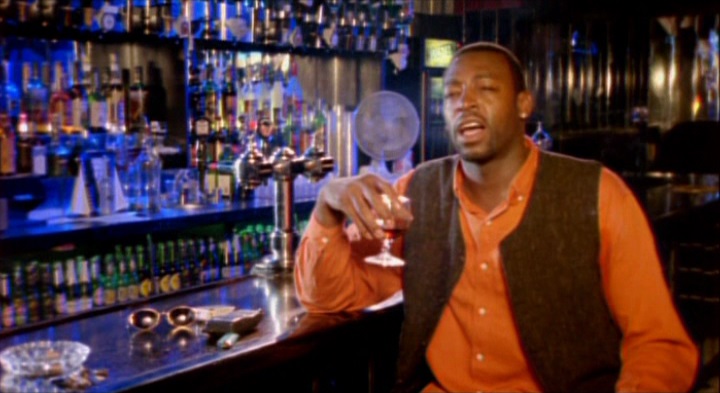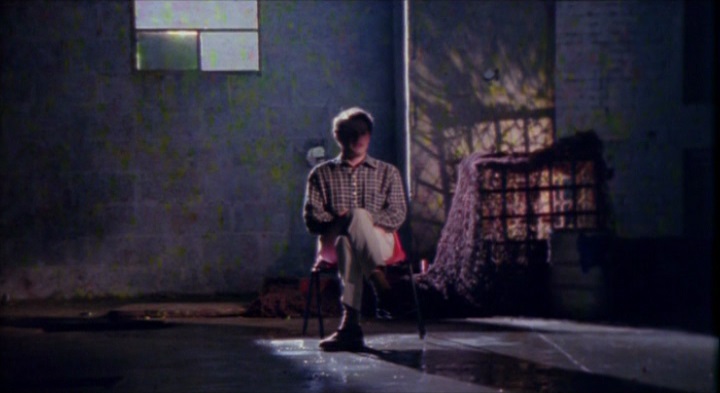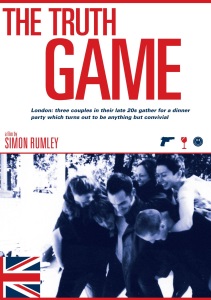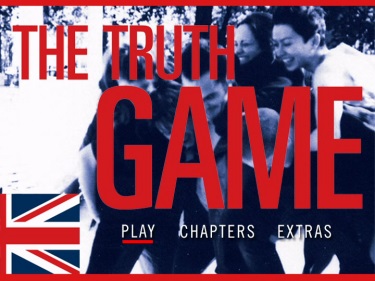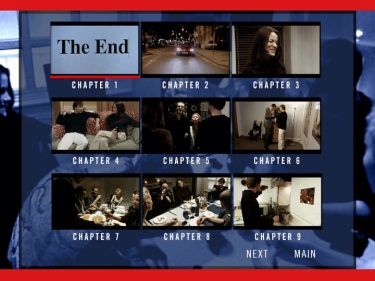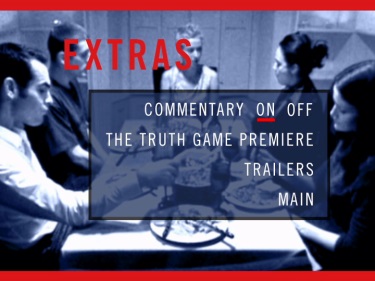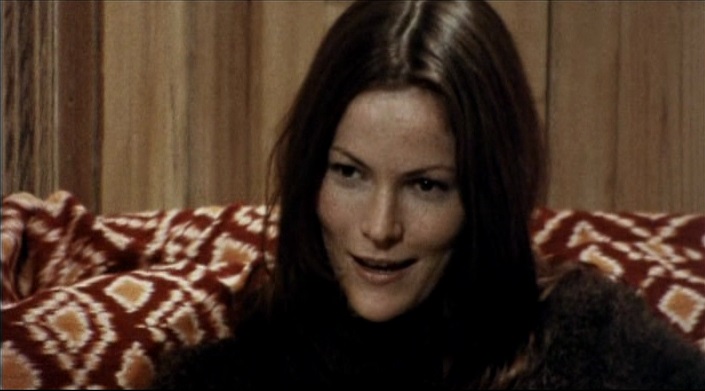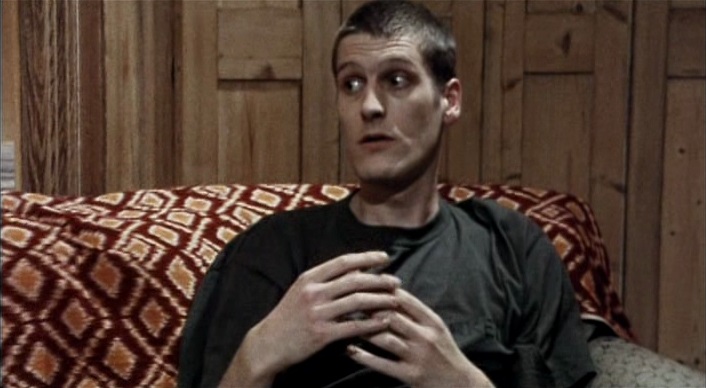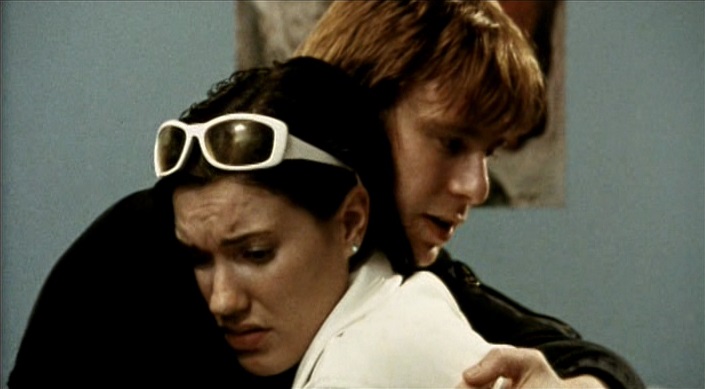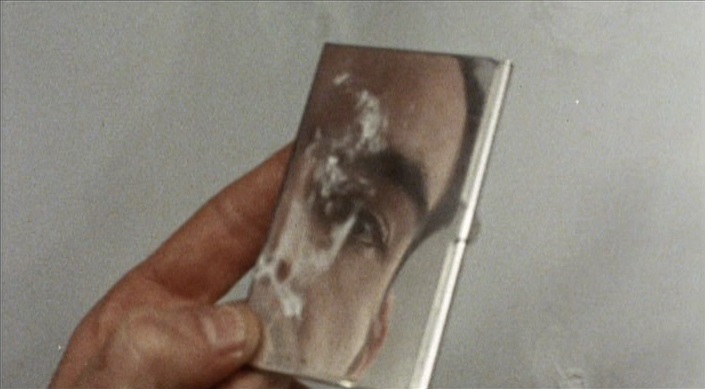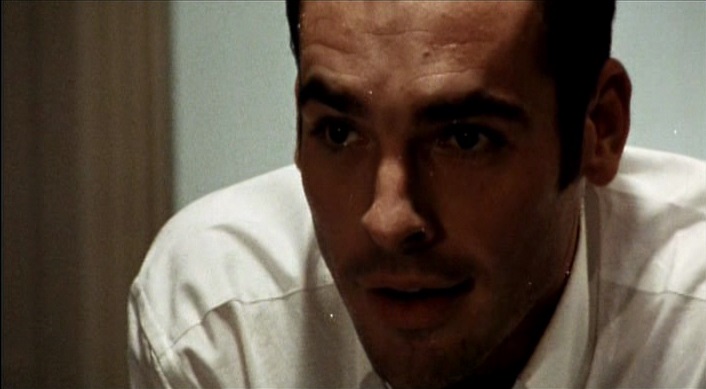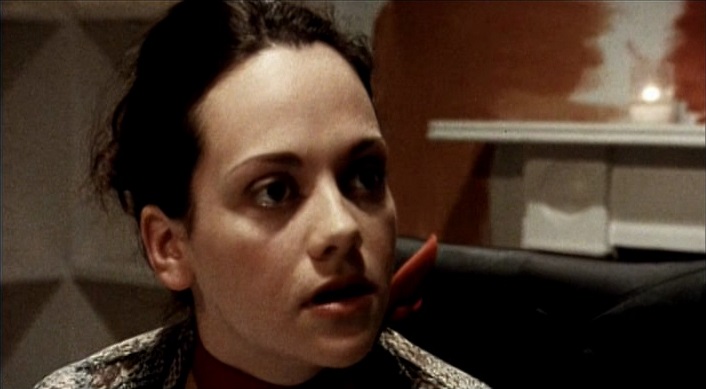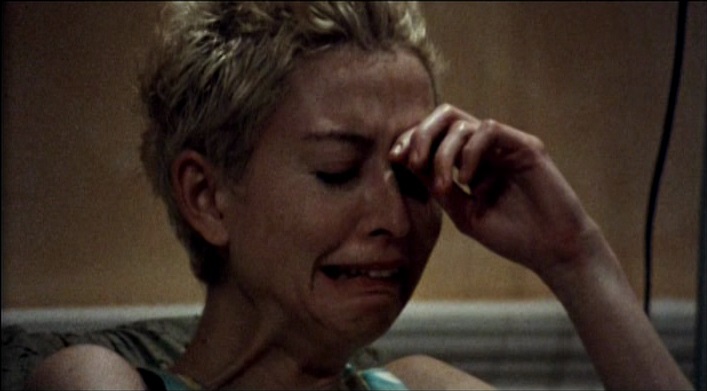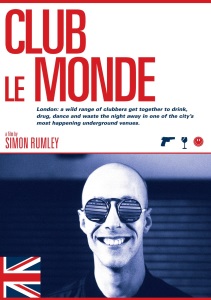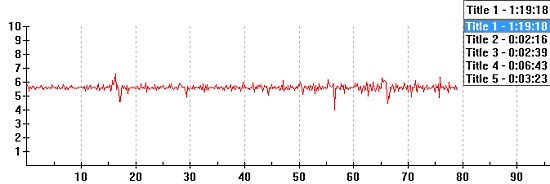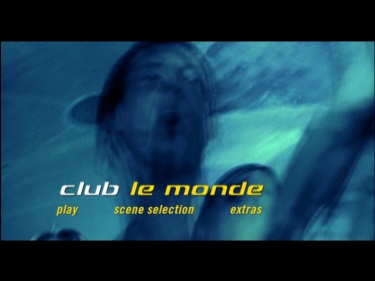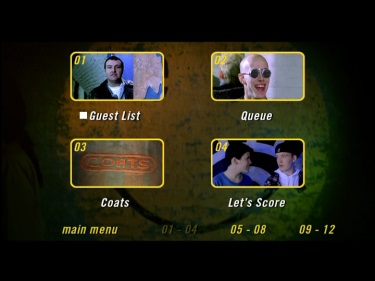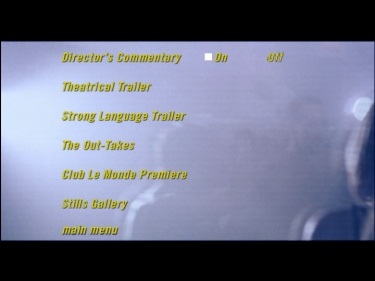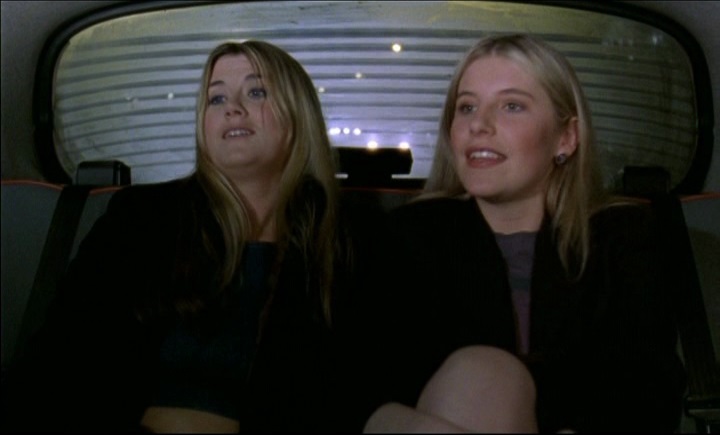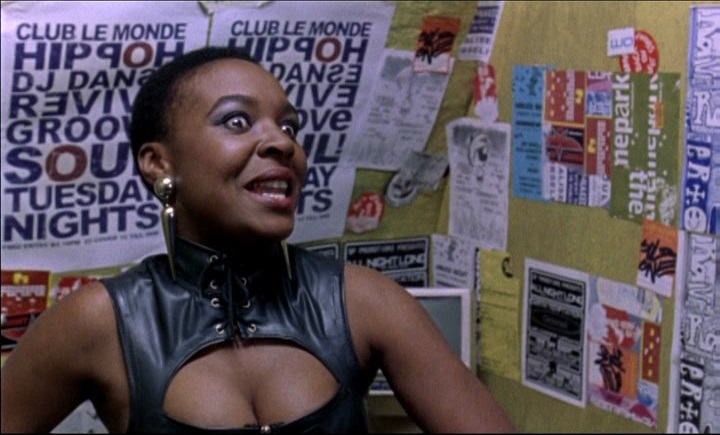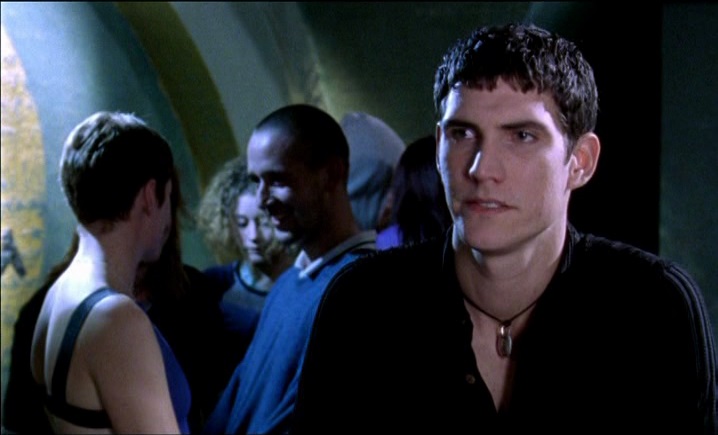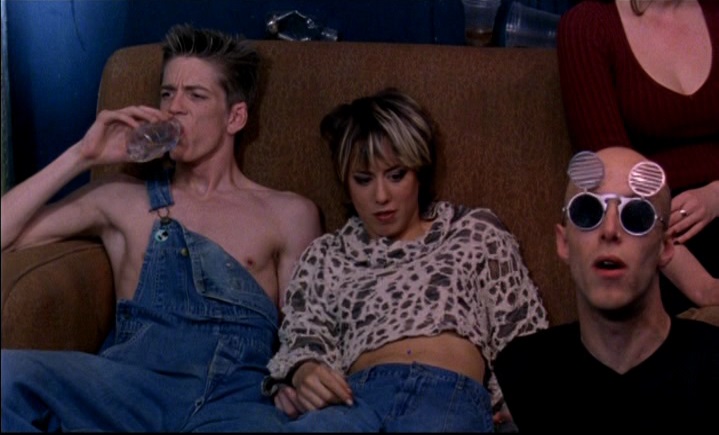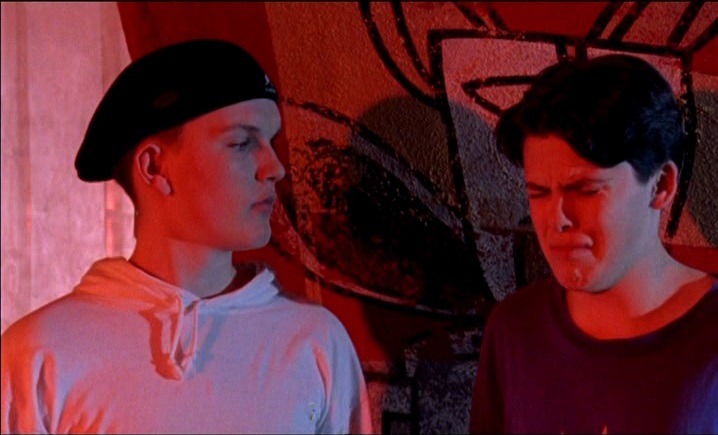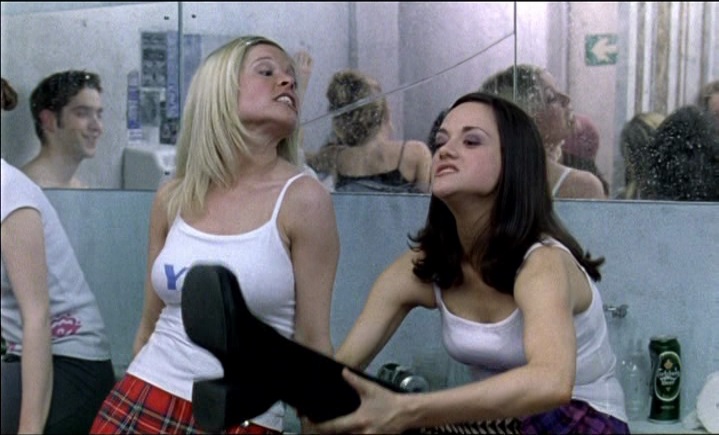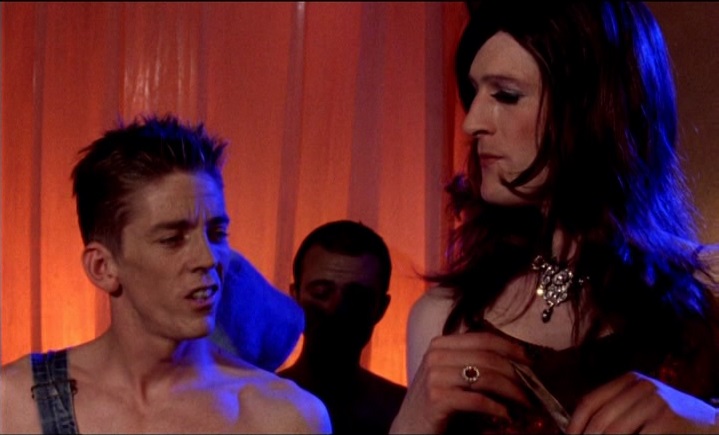![]()
![]()

![]()
![]()
|
Search DVDBeaver |
S E A R C H D V D B e a v e r |
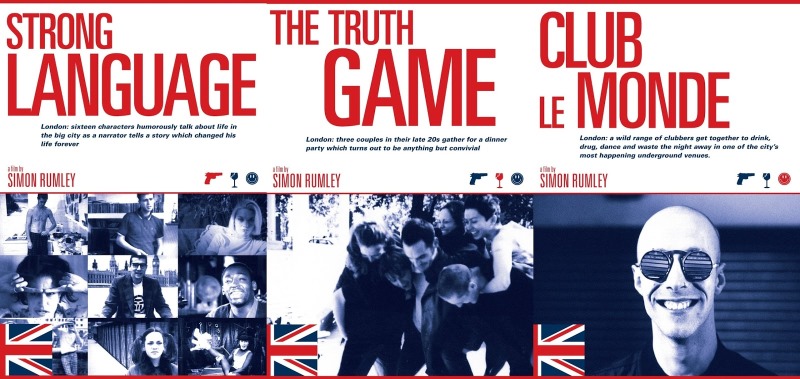
The Simon Rumley Trilogy
Strong language (2000) The Truth Game (2001) Club Le Monde (2002)
| Advertised and numbered as a trilogy
but actually sold individually, Jinga Film’s triad of DVDs presents
the assured early “indie-feel” Richard Linklater-inspired works of
British director Simon Rumley whose subsequent works from THE
LIVING AND THE DEAD onwards took on a darker, slicker turn
(including one of the best shorts of THE ABCs OF DEATH). STRONG LANGUAGE (2000) has a convincing documentary feel as its deceptively loose pre-9/11 ruminations of sixteen young Londoners – on everything from debt, the club scene, drugs, beer, racism, cynicism, AIDS, the London Underground, and Soho – are eventually revealed to provide the cultural context for the narrator’s (David Groves) interspersed account of a horrific event that befell his girlfriend and himself one night and its fallout. While one can presume that the story was fictional (or at least a fictionalized account), it is genuinely surprising when the young Londoners are revealed in the end credits to be actors – including Stuart Laing (TV’s EASTENDERS) who would next appear in a larger role in THE TRUTH GAME – with scripted dialogue (less so as the viewer digests the two subsequent films in the trilogy). A keenly observant writer and director, Rumley doesn’t pass judgment on the sometimes pretentious, elitist, arrogant, selfish, irresponsible, and shallow opinions of the interviewees – nor does he suggest that something like the aforementioned horrific event could only happen in such an environment – rather, the stated beliefs of these “characters” provides a richer sense of setting than the director could have likely dramatized (as proven in the trilogy’s third entry CLUE LE MONDE). Rumley’s follow-up THE TRUTH GAME (2001) – the best and most mature of the three – is a more intimate ensemble comedy of bad manners as writer Eddy (Stuart Laing) and his wife Lily (Selina Giles, RESTORATION) throw a dinner party. The guests include yuppie couple Charlotte (Tania Emery, who appeared in all three of the films in the trilogy) and Dan (Paul Blackthorne, LAGAAN: ONCE UPON A TIME IN INDIA) and Alex (Simone White, HOW TO EAT FRIED WORMS) and Alan (Thomas Fisher, THE MUMMY RETURNS) from the other end of the social spectrum. The evening starts off bad since all of the couple are either thoroughly annoyed with their significant others and their friend’s partners, or they’ve got secrets that they’re not ready to disclose (although one doesn’t see how a dinner party might not be a good place to spring her news). Even before the titular “truth game” – which is actually a party game in this context – polite dinner conversation has degenerated into vulgar jokes, impressions, animal noises, a little coke-snorting, and “who’s tits do you wanna suck?” and Eddy may be understating things when he suggests that playing “the truth game” with partners and friends inevitably ends in tears. In the premiere documentary, Rumley describes the film as being about the disconnect people have between their perceptions at twenty-one of how they will be at thirty and how they end up (successful, settled, cultured, and current); and at least four of the six people at this dinner party are play-acting at being adults. Lily is keeping up appearances, but her husband is an unemployed writer who doesn’t want to sell out but deals cocaine on the side (which Lily takes pains to overlook even when he’s supplying Dan in between courses). Their playing house in an “under renovation” home of a friend who is currently abroad. Charlotte and Dan are thoroughly disgusted with one another (he has murderous fantasies about her and she is already seeing someone else), and even the sweetest of the couples Alex and Alan can only talk around their devastating secret for so long. CLUB LE MONDE (2002) offers up a night in the life of a string of characters and intersecting storylines illustrates the cross-section of life encountered at the titular West End nightclub. There’s a love story between Mike (Brad Gorton, GET REAL) and Ali (Allison McKenzie, 16 YEARS OF ALCOHOL) torn apart by jealousy and their own insecurities. Each of the lovers has a comic sidekick: Jacqui (Dawn Steele, THE DEBT COLLECTOR) and Steve (Daniel Ainsleigh, QUILLS) whose advice isn’t always wise. The owner of the club Danny (Frank Harper, LOCK, STOCK, AND TWO SMOKING BARRELS) is shacking up with the wife (Lyndi Oliver) of his brass-knuckled partner (Bruce Byron, HOLD BACK THE NIGHT). Bouncer Mosh (Tony Maudsley, VANITY FAIR) is the butt of so many jokes and scams, he’s thinking of going back to school and becoming a lawyer. There’s a pair of well-spoken underage “public school” kids Andrew (Tom Connolly, UNDOCUMENTED) and Patrick (Tom Halstead) trying to score Ecstasy and cocaine. Throw in a trio of drag queens (including THE TRUTH GAME’s Thomas Fisher), a lesbian (Wendy Wason, who also had a small role in THE TRUTH GAME) who dances in her bra and wonders why men hit on her, a guy who wears his “sunglasses at night” (Danny Nussbaum, THE COTTAGE), and Yas (Emma Pike, THE AFFAIR OF THE NECKLACE) and Kelly (Tania Emery, STRONG LANGUAGE) who spend the entire evening in the restroom snorting coke, and you’ve got a busy night. CLUB LE MONDE seems very much like the setting where STRONG LANGUAGE’s climax could have occurred, and its seems as though something along those lines might happen as the various stories come to a head in the climax; but CLUB LE MONDE is a warm, funny portrait of young people “working for the weekend” (some of them may be reprehensible, but they’re human). The three of these films grouped together and watched one after another – along with perhaps the more personal THE LIVING AND THE DEAD – demonstrate a greater talent than suggested by Rumley’s latest shorts in THE ABCs OF DEATH – although that was one of the better if not the best episode of twenty-six – and LITTLE DEATHS; and one eagerly anticipates his return to features. |
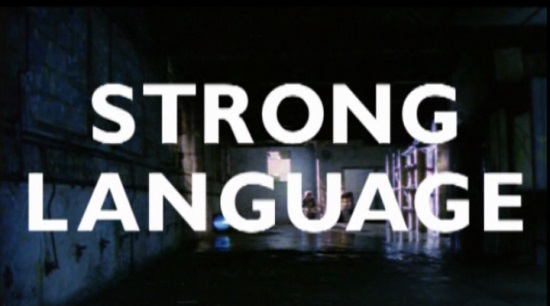
directed by Simon Rumley
UK 2000
Theatrical Release: 28 January 2000 (UK)
Reviews More Reviews DVD Reviews
DVD Review: Jinga Films / MVD Visual - Region 0 - NTSC
Big thanks to Eric Cotenas for the Review!
| DVD Box Cover |
|
CLICK to order from:
|
| Distribution |
Jinga Films / MVD Visual Region 0 - NTSC |
|
| Runtime | 1:20:03 | |
| Video |
1.85:1 Original Aspect Ratio |
|
|
NOTE: The Vertical axis represents the bits transferred per second. The Horizontal is the time in minutes. |
||
| Bitrate |
|
|
| Audio | English Dolby Digital 2.0 stereo | |
| Subtitles | none | |
| Features |
Release Information: Studio: Jinga Films / MVD Visual Aspect Ratio:
Edition Details: Chapters 12 |
|
| Comments |
Jinga Films'
single-layer disc features a non-anamorphic letterbox transfer
of this almost fourteen-year-old PAL DV-originated production.
Like Criterion's treatment of PAL video works like
COLOSSAL YOUTH, it appears that Jinga has slowed down
the framerate to 23.976 (and compensated by adjusting the pitch)
to achieve a progressive NTSC image. The results are good given
the older master, and one or two flashes of tape noise and
occasional aliasing are probably part of the original master or
even the original recording (given the faux-documentary
approach, it is not a distraction). The Dolby Digital 2.0 stereo
mix only comes to life with the title music and a couple stings,
but the film is about 95% talking heads with little to no sound
effects or other musical comment. |
DVD Menus
|
|
|
Screen Captures
|
|
|
|
|
|
|
|
|
|
|
|
|
|
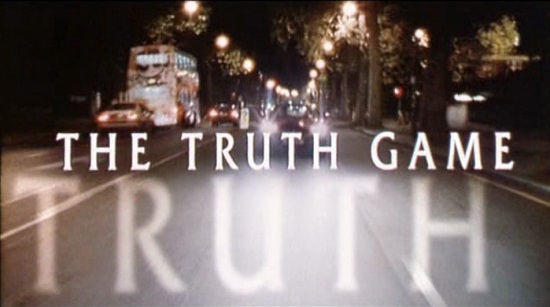
directed by Simon Rumley
UK 2001
Theatrical Release: 20 July 2001 (UK)
Reviews More Reviews DVD Reviews
DVD Review: Jinga Films (The Simon Rumley Trilogy) - Region 0 - NTSC
Big thanks to Eric Cotenas for the Review!
| DVD Box Cover |
|
CLICK to order from:
|
| Distribution |
Jinga Films Region 0 - NTSC |
|
| Runtime | 1:18:09 | |
| Video |
1.82:1 Original Aspect Ratio |
|
|
NOTE: The Vertical axis represents the bits transferred per second. The Horizontal is the time in minutes. |
||
| Bitrate |
|
|
| Audio | English Dolby Digital 2.0 stereo | |
| Subtitles | none | |
| Features |
Release
Information: Studio: Jinga Films Aspect Ratio:
Edition Details: Chapters 18 |
|
| Comments |
Shot in
Super 16mm with Dogme-style pre-lit locations, THE
TRUTH GAME has a rough and gritty look that is
perhaps appropriate given the artifice of the elegant
setting. It too appears to derive from an older
non-anamorphic master - presumably the same one used for
the UK DVD release - but has also been thankfully
converted to progressive 23.976 NTSC (with pulldown for
monitors that don't support the framerate). The
occasional black spots are part of the processing, and
the edge-enhancement probably dates back to the original
master. Given the look of the production and the age of
the master, it zooms into 16:9 well enough. |
DVD Menus
|
|
|
|
|
Screen Captures
|
|
|
|
|
|
|
|
|
|
|
|
|
|
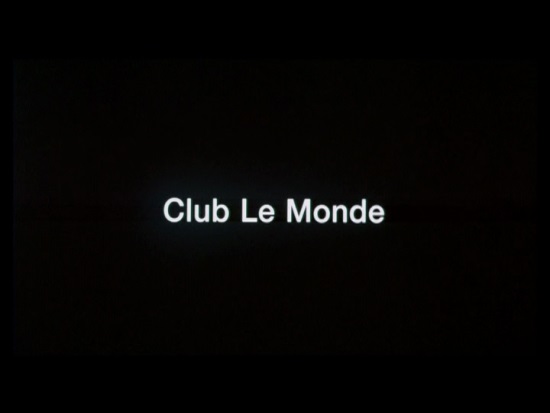
directed by Simon Rumley
UK 2002
Theatrical Release: 11 October 2002 (UK)
Reviews More Reviews DVD Reviews
DVD Review: Jinga Films (The Simon Rumley Trilogy) - Region 0 - NTSC
Big thanks to Eric Cotenas for the Review!
| DVD Box Cover |
|
CLICK to order from:
|
| Distribution |
Jinga Films Region 0 - NTSC |
|
| Runtime | 1:19:18 | |
| Video |
1.66:1 Original Aspect Ratio |
|
|
NOTE: The Vertical axis represents the bits transferred per second. The Horizontal is the time in minutes. |
||
| Bitrate |
|
|
| Audio | English Dolby Digital 2.0 stereo | |
| Subtitles | none | |
| Features |
Release Information: Studio: Jinga Films Aspect Ratio:
Edition Details: Chapters 12 |
|
| Comments |
Shot in Super 16mm
and blown-up to 35mm, CLUB LE MONDE is the best-looking
of the three films in the Rumley trilogy despite the aged
master. It's also the best-sounding, as well as having the most
extras. |
DVD Menus
|
|
|
|
|
Screen Captures
|
|
|
|
|
|
|
|
|
|
|
|
|
|
![]()
![]()

![]()
![]()
 Search DVDBeaver |
S E A R C H D V D B e a v e r |
